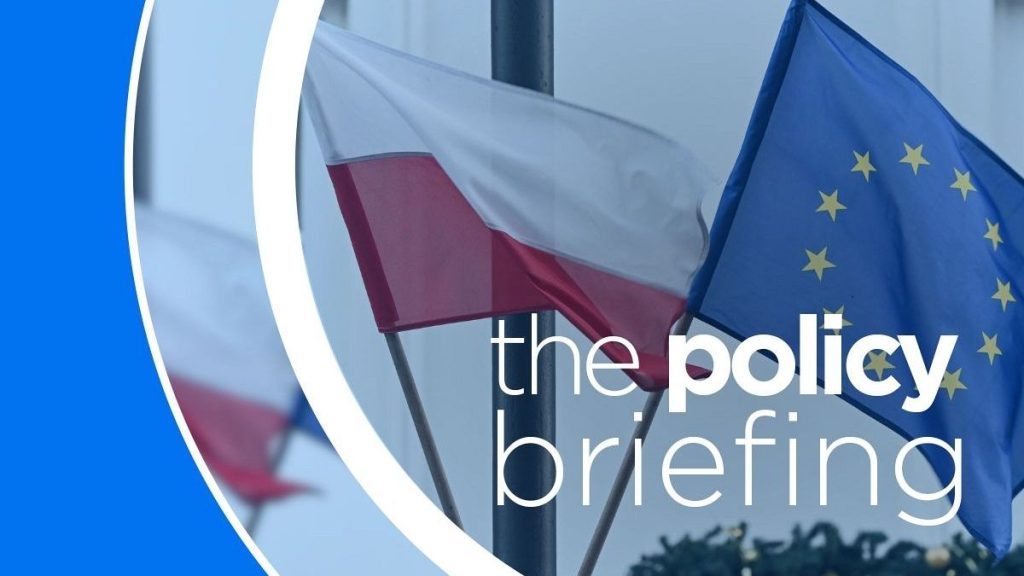Poland’s EU Presidency and Border Security Dominate the Week’s Agenda
The week ahead in European politics is characterized by Poland’s renewed leadership role within the EU and the ongoing debate surrounding border security. Polish Prime Minister Donald Tusk is set to address the European Parliament, outlining the priorities of the Polish EU Council Presidency, aptly themed "Security, Europe." This theme encompasses a broad range of security concerns, from energy independence and the transition away from Russian fossil fuels, to food security, health security, financial stability, and cybersecurity. Crucially, it also highlights the strengthening of military security and cooperation between the EU and NATO. However, a central and potentially divisive element of Poland’s presidency is its focus on boosting border security, particularly along its eastern border with Belarus.
The backdrop to this emphasis on border security is the ongoing migrant crisis that has affected Poland since 2021. With influxes of migrants facilitated by Belarus and Russia, Poland has taken measures to reinforce its border, including the construction of physical barriers. The previous Polish government initiated these construction projects and sought financial assistance from the EU, but received minimal support. Tusk’s government is continuing this approach with the "Eastern Shield" initiative, also seeking EU funding for border infrastructure. This issue is likely to provoke debate within the European Parliament, as member states remain divided on the use of EU funds for building physical borders. Other countries facing similar challenges, including Estonia, Lithuania, Latvia, and Finland, are also constructing border fences and seeking financial support, creating a potential alliance with Poland on this issue.
Tusk’s address to the European Parliament will be a key moment in shaping the debate. He is expected to address the issue of border security, either directly or indirectly, potentially lending support to the idea of EU funding for such projects. The following day, the European Parliament will specifically debate the allocation of EU funds for border security infrastructure, setting the stage for a potentially heated discussion among MEPs. This debate reflects the broader tension within the EU between the principles of free movement and the need for enhanced security measures in response to geopolitical challenges. The outcome of this debate will have significant implications for border security policies across the EU and could shape the allocation of resources for border management in the coming years.
Greenland Seeks Stronger EU Ties Amidst Geopolitical Uncertainty
Meanwhile, another significant development is emerging in the Arctic region. Greenland, a self-governing Danish island and NATO ally, is expressing a desire for a strengthened EU presence in its territory, particularly concerning the management of critical raw materials essential for clean energy technologies. This move comes in the wake of renewed geopolitical interest in the Arctic, highlighted by past remarks from former US President Donald Trump regarding Greenland. Greenland’s interest in closer ties with the EU reflects its strategic importance in the global transition to renewable energy. The island possesses substantial reserves of rare earth minerals and other resources crucial for the production of solar panels, batteries, and other clean energy technologies.
Greenland’s Premier, Múte Egede, has indicated a willingness to collaborate with the US on defense and mining, but on Greenland’s own terms. This nuanced approach suggests a desire to balance strategic partnerships with protecting Greenland’s autonomy and interests. The EU’s potential role in Greenland could involve investments in resource extraction, infrastructure development, and research collaborations related to clean energy technologies. A stronger EU presence could also provide Greenland with greater leverage in navigating complex geopolitical dynamics in the Arctic region. This development underscores the growing importance of the Arctic in the global race for resources and strategic influence.
The Convergence of Security and Resource Concerns
Both the focus on border security within the EU and Greenland’s outreach to the EU highlight interconnected themes of security and resource management. Border security concerns are driven by geopolitical instability and migration pressures, while Greenland’s focus on critical raw materials reflects the global competition for resources essential for the green energy transition. These seemingly disparate issues are linked by the broader geopolitical landscape and the increasing importance of securing access to vital resources. The EU’s response to both challenges will be crucial in shaping its future role in global affairs. Its handling of border security will test its ability to balance security concerns with humanitarian principles and the free movement of people. Its engagement with Greenland will demonstrate its commitment to securing access to critical resources and its ability to navigate complex geopolitical dynamics in strategically important regions. The coming weeks and months will be critical in observing how these issues unfold and how the EU navigates these complex and interconnected challenges.














